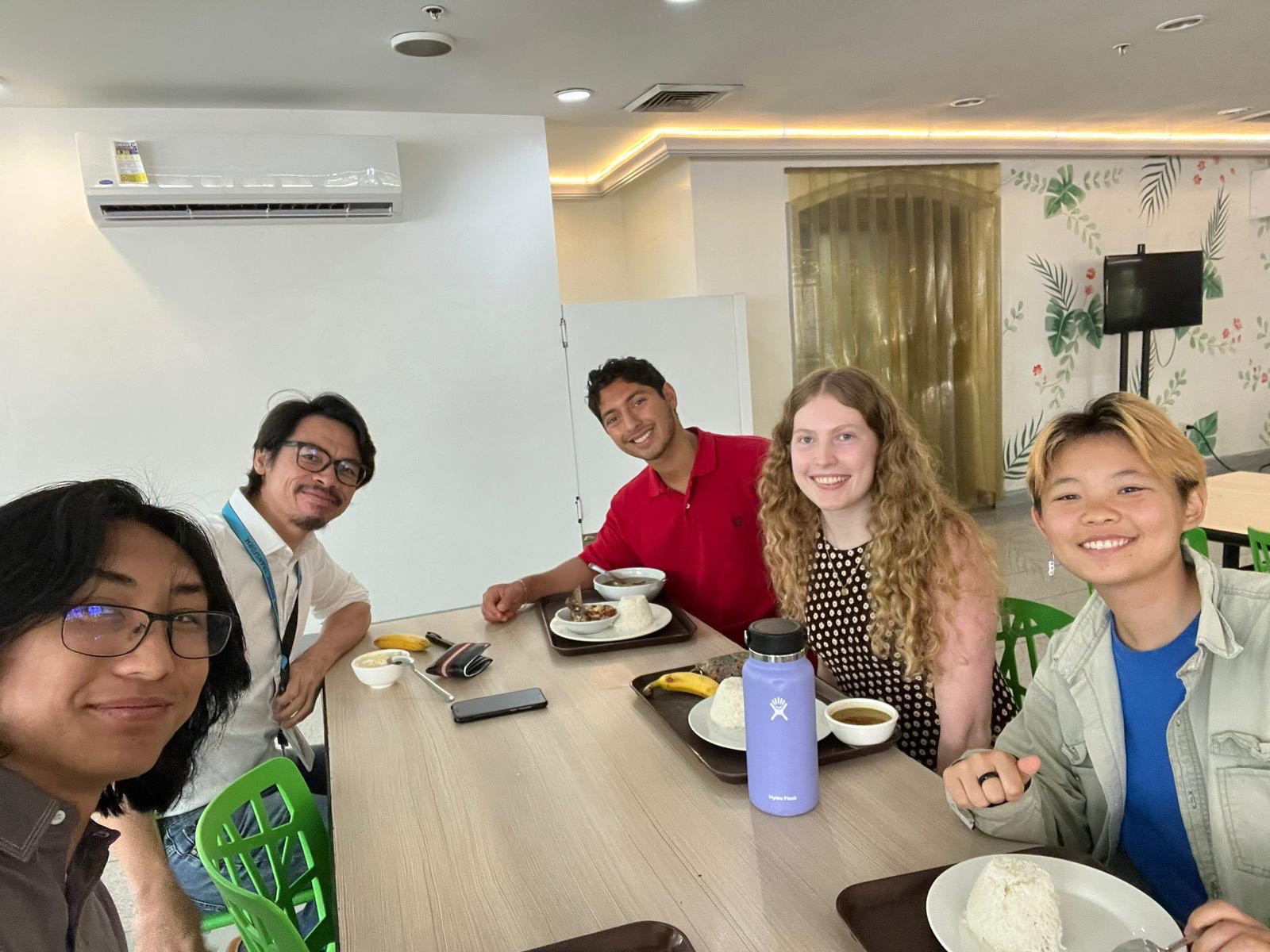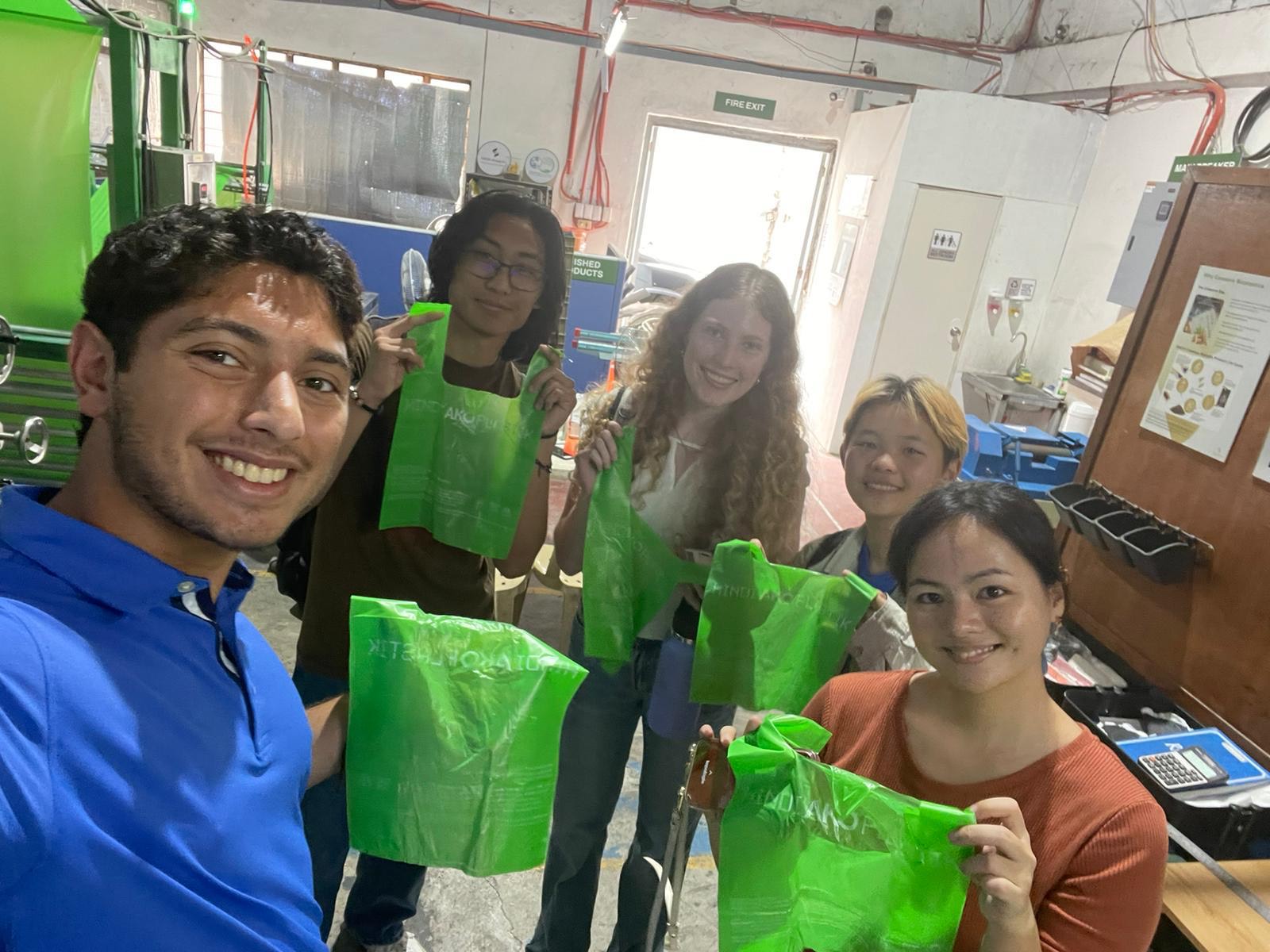Global Social Impact Fellowship: An Exciting Undergraduate Opportunity!
Article written by Juliana M., Bioengineering undergraduate student and student office worker in the Department of Bioengineering
Lehigh’s Office of Creative Inquiry offers a unique program called the Global Social Impact Fellowship (GSIF) where undergraduate students can develop projects and create measurable social change. Impact Fellows are a select group of students from all colleges across campus that tackle sustainable development challenges in low-resource and middle-income communities; students work on projects during the academic year and engage in faculty-led fieldwork over the summer. This program emphasizes creativity, innovation, and hard work. Students are also contributing to meaningful social change while developing leadership and interpersonal skills, collaborating with motivated peers and faculty, enhancing their professional networks, and gaining a competitive edge for future opportunities. For bioengineering undergraduate students, the AgriWrap, AISHA, and SicklED projects create a meaningful impact that YOU may have a passion for! Applications open on October 15, 2024, and stay open until November 1.
Here is a closer look at some BioE-related projects:
The AgriWrap team, featuring Estefania Ravelo (Environmental Engineering ‘26), Nicholas Evaristo (Bioengineering ‘27), George Jabbour (Biochemistry ‘27), Maeve Timms (Bioengineering '27), and Jing Yan (IDEAS ‘27) is addressing a pressing environmental challenge in the Philippines: plastic waste, particularly from food packaging. With a vision to create more sustainable food packaging, the team is developing an affordable biodegradable alternative while collaborating with existing manufacturers to lower costs in a highly price-sensitive market. Their mission centers on making eco-friendly solutions accessible to local communities.
AgriWrap is currently conducting lab research to create bio-pellets out of corn husks for their food packaging alternative. They also are extremely proud of their current partnership with the University of the Philippines Diliman which recently developed a seaweed-based film prototype. Additionally, the team is working toward publishing two critical papers. The first is a market research study examining street food packaging in the Philippines, which aims to identify gaps and opportunities within the market. The second paper provides a comprehensive review of the waste management system in the Philippines, outlining existing laws, operational challenges, and areas for improvement.
Something that makes AgriWrap so special is its multifaceted nature. George Jabbour entered the fellowship eager to engage in lab work abroad but instead found himself focusing more on the economic, business, and marketing dimensions of the project. He reflects, “This experience has taught me how to pitch and present effectively, broadening my understanding of how to bring innovative solutions to market.” AgriWrap fosters creativity in exploring biodegradable materials and encourages young engineers to think critically about real-world applications. The project empowers fellows to take charge of their initiatives, cultivating leadership and problem-solving skills essential for future careers.
The Artificial Intelligence Strengthening Healthcare Access (AISHA) team:
The Artificial Intelligence Strengthening Healthcare Access (AISHA) team: Gabriela Quinteros (Bioengineering ‘27), Simone Karani (Computer Science ‘26), Vrushti Patel (Computer Science & Business ‘26), Juliana Magarelli (Bioengineering ‘27), Maaz Tanveer (Computer Science & Engineering ‘27), and Natalie Kam (Biostatistics & Health Data Science ‘27) is utilizing Amazon Alexa's conversational abilities to educate and provide essential information to nurses, midwives, and interns in the Sierra Leone healthcare system: mainly in hospital settings. The team has curated 6 databases for departments such as Antenatal care, Mental Health and Epilepsy, and Nephrology: each containing answers to over 500 questions. With AISHA, healthcare workers can ask questions and instantly receive an accurate answer relevant to Sierra Leonian standards and the resources available to them. AISHA intends to improve patient care and outcomes by supplementing their current education system and providing answers to questions that nurses may have forgotten since their formal training. AISHA is like a textbook you can talk to, and will make significant contributions to the healthcare education system!
The team spent three weeks in Makeni, Sierra Leone, and made immense progress in the implementation of their system. Mainly, what the team is most proud of was the start of a one-year pilot in three different hospitals. The AISHA team also formed valuable connections with doctors and nurses who provided essential feedback for the improvement of their product. To accomplish this, the team spent time talking with healthcare workers who would potentially use AISHA. Magarelli states: “It was incredible to see AISHA being used by healthcare workers and see their excitement and feedback. Honestly, just talking to nurses about their daily lives and introducing AISHA was not only rewarding but also extremely enlightening.” Being a part of this project has taught the team members valuable communication and collaboration skills that they are now able to apply to other aspects of their lives and future careers.
While this project involves a decent amount of technical skills in the development of its program, what makes AISHA so impactful is its extensive database! Two bioengineering students (Gabriela Quineteros and Juliana Magarelli) on this team expressed that they found value in the research that they had to conduct during the creation of these databases. Throughout their time on this team (mainly during fieldwork) they learned a considerable amount about diseases, treatments, and medical practices: fueling their passion and knowledge of bioengineering. AISHA is extremely relevant for bioengineers on all tracks (especially those passionate about the medical field) because fellows learn about specific medical conditions and develop analytical, communication, and problem-solving skills crucial for a future career in bioengineering.
The SicklED Team:
The SicklED team, including Nancy Cárcamo Paiz (Bioengineering ‘27), Alice Chen (Biochemistry '24), Amelie Fry (Bioengineering & Philosophy ‘27), Nicole Hirsch (Mechanical Engineering & Product Design ‘26), Owen Holst (Bioengineering ‘27), Adelaide Ogden (Bioengineering ‘26), Jake Feuerstein (Bioengineering '26), Hamsa Javagal (Biology '25), Lauryn Jones (Population Health '25), and Chibugo Okeke (Molecular Biology '25) is dedicated to advancing sickle cell care in Sierra Leone, a country facing significant challenges in diagnosing and educating healthcare workers about sickle cell disease. SicklED contributes to an end-to-end systematic change that integrates diagnostic test strips, continuing medical education (CME) courses, educational materials, and supportive policy frameworks to enhance sickle cell care.
To address Sierra Leone’s current lack of treatment resources and education, SicklED is studying various factors, including public perceptions of sickle cell disease, international sickle cell policy, and the link between diagnosis and health outcomes. The ultimate goal is to make diagnostic tests widely available, enabling the identification of sickle cell patients and ensuring they receive the appropriate resources for effective disease management. By working with partners in the Ministry of Health as well as doctors and nurses, one main outcome of SicklED’s project is the empowerment of healthcare workers to adequately treat sickle cell disease as well as community members, who likely aren’t aware of the implications of the disease. The SicklED team would not be where they are today if it wasn’t for teamwork and communication. Adelaide Ogden shares that one of her favorite parts of the project has been the opportunity to bond with her teammates over the past year. “We all contribute unique perspectives and ideas, which has allowed us to make significant progress,” she explains. The collaborative environment is what allows this team to thrive in addressing such a complex challenge.
The SicklED project is also providing valuable hands-on experience in the lab, as the team is developing a diagnostic lateral flow assay for sickle cell disease. This aspect of the project has given team members practical skills in creating diagnostic test strips, something that bioengineering students may find exciting!


The Global Social Impact Fellowship at Lehigh University is an opportunity for undergraduate students to engage in transformative projects that address critical challenges faced by low-resource and middle-income communities. Through initiatives like AgriWrap, AISHA, and SicklED, fellows are not only honing their leadership and technical skills but also making a tangible difference in the lives of individuals and communities around the world. If you are interested in learning more, we reccomend contacting the Office of Creative Inquiry.







